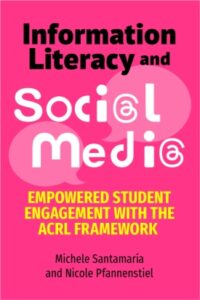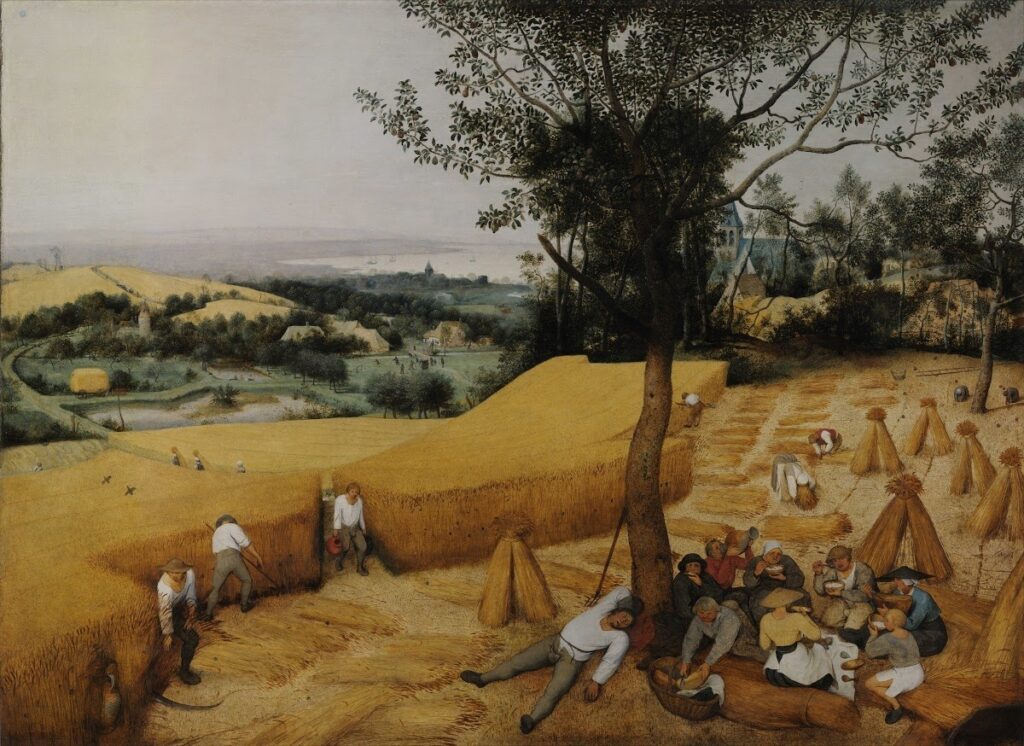One of my former students from SJSU had an interesting question for me about archiving student and faculty blogs:
I am in the midst of reading Varsity Letters : Documenting Modern Colleges and Universities and I realized that a major hole in our archives is the documentation of the teaching and learning that is taking place. People don’t really write things down on paper anymore (as you know) so things like student notes, journals, etc. are more difficult to collect.
So I was thinking. I know a lot of our students and faculty are probably keeping blogs and I started thinking about using those as a record of student life, learning and faculty teaching… not all of them of course, but a representative sample.
Do you know of anyone who is collecting information for archives using say, delicious or a wiki?
I’m trying to wrap my mind about all the different possibilities for how to archive this information, which would be an awesome resource for future researchers and our institution.
This is something that I’ve thought about, but I don’t actually know about any academic initiatives to collect blogs, archive blogs, or preserve blogs. In the long term, it’s going to take a lot more than linking to them on a wiki or bookmarking them in del.icio.us. When I think about libraries archiving student and faculty blogs for future generations, I think about copyright, access, and preservation issues and my head spins. I’m not an archivist, but even I can imagine what a big deal it would be to archive these materials in the long term. Still, I know that blogs are going to be important artifacts for the future. These will be vital windows into our culture long after we’re gone… if we find ways to collect and preserve them.
So, I’m curious… is anyone else thinking about this? Is anyone doing anything about this?




I wrote about this on my blog a while back. Specifically I wrote about email, but the same applies to blog posts. About this time last year, Windows Live Hotmail and the British Archives teamed up to create an archive of emails in order to get a “snapshot of British life.” Again, not exactly about blogs, but the idea that emails are not written on paper and the history that could be lost if we do not keep these pieces of information is the same.
@Eric, thanks for letting me know about this! Yes, emails are very similar to blogs in providing a window into everyday life. Emails and blogs will be just like the letters and journals of the past. I know the President at our University saves all of his emails for archival purposes, though I don’t think our library really knows what to do with them yet!
The University of Michigan’s MBlog blogging tool offers users the opportunity to have their blogs archived and preserved at the Bentley Historical Library, the U-M’s archives, after the blog is moribund. See http://mblog.lib.umich.edu/ .
YES! I really think this is an important issue… especially as some forms of scholarship move online. We’re hosting blogs and wikis for academic and student life now, and we started offering them (in part) for many of the reasons you describe. Librarians collect, preserve, and index information. In offering these tools, we’re doing it in the digital world.
I wish, though, there was a way to do this beyond our walls. There are so many great sites out there that would be rich as primary source material for future research, but copyright makes it challenging to think about third party preservation.
Thanks for starting this conversation… I look forward to the comments!
There are some selective archiving projects going on, most visible in the Australian National Library, and the Wellcome Trust in the UK. The California Digital Library is also beginning to play with it, along with LC, through the Digital Library Federation. I haven’t had much chance to look at these, but I’m planning to very soon, as they are going to be included in the next chapter of the book on Special Collections 2.0 I’m co-authoring.
Australia’s National Library has been archiving blogs for several years as part of the Pandora archive. Several Aussie library blogs are included.
@Ken and @Lauren, I’d never thought of that! Obviously libraries hosting blogs for students and faculty supports their academic and non-academic work, but it hadn’t occurred to me that it would also aid the library in later archiving those materials (with permission, of course).
@Fiona, thanks for letting me know about that! The National Library in Australia seems really ahead of the game in collecting virtual artifacts and making digital materials available online.
I wonder, if a library did collect specific blogs (that they don’t host themselves), what the criteria would be for doing so, since most libraries probably wouldn’t want to collect everything, even if we could.
http://www.loc.gov/webcapture/index.html
LC is doing something in this area, but I don’t know that they’ve really started to focus on blogs yet.
Anyway, doesn’t the Internet Archive get this kind of stuff as well?
@bibliotecaria, The Internet Archive does archive many web pages, but they don’t always do a complete job with blogs and I know some of the archives of my blog from archive.org look really weird (with the formatting all screwed up).
What I was thinking about more were institutions that were explicitly collecting blog content from their constituents to capture the culture of their institution for posterity. I’m curious about how libraries and archives are going to collect this personal electronic ephemera, now and in the future. Right now, it seems like it’s mostly national institutions that are doing this, though a few academic libraries seem to be moving in that direction.
We’ve just started talking about this at Tufts, but it hasn’t turned into a full-scale initiative yet. We are also very concerned about wikis , which have rapidly been becoming the de facto place for internal communication and documentation, and are clearly university records.
I’m hoping that my institution will begin talking about it soon, since we collect the archives of living SF writers who do most of their talking about their process on their blogs. There are communities of bloggers in SF, including critique groups. If we don’t archive their blogs, we’re missing literally half of their archives.
Brian Matthews and I kicked around the idea of aggregating and creating an index of blog postings of Georgia Tech faculty (as well as any other content we could find; wikis, white papers, etc.) to have alongside our other databases.
But it never really got started and then I left and I imagine it’s never really gone anywhere.
@Deborah and @Lynne, that’s great to hear that other libraries are at least thinking about this stuff as well. I’ll be curious to see how it pans out at both of your institutions. Best of luck in navigating these uncharted waters!
Meredith,
Since I am currently researching this, I posted a list of the projects that I have found thus far on my blog this morning. If anyone has other projects to add, I would LOVE to hear about them!
Hi Meredith, the National Library of Singapore has a similar web archive project where websites deemed authoritative, and/or have cultural and historical significance are captured. It also archives authoritative blogs such as those written by people known in their fields, award-winning blogs, and those by grassroots organizations, political leaders and celebrities. It’s not easy to map some of these common criteria used by national libraries to an academic library. Faculty members are authorities in their own right (do we archive everything?), and the number of wikis/blogs used in classes and scholarship 2.0 is going to grow exponentially. My guess is academic libraries may have to archive some of these alongside what they’re doing with LOCKKS and Portico.
@Lynne, fantastic! Thanks for the resource links! For anyone else interested in this, you should visit Lynne’s post at http://niurarebooks.blogspot.com/2008/06/digital-preservation-redux.html.
@Aaron, thanks for letting me know about your project. It’s nice to learn about the criteria being used to archive these materials in other places. You’re right that this will become increasingly complex as the amount of online scholarship taking place on blogs, wikis, etc. continues to grow.
The Public Health section of the Medical Library Association is in the process of launching a blog to replace our newsletter. A number of members have expressed interest in having “issues” available to them, so we’ve installed a WP plugin that will convert blog posts to PDF and email them upon request. The Post to PDF Sidebar plugin will convert whatever posts are showing on the page at the time. So you could archive by month, category, etc. This might be one option for users out there.
Ack! the link should be http://phha.mlanet.org/blog . Sorry!
I actually think that this is an interesting topic for the upcoming Web 2.0 or Library 2.0 technologies. I don’t believe anything in my life, other than authoring several blogs or self-cataloging would be in the works now. Still if it is a noteworthy email or blog, then what’s to say that won’t occur. Cataloging blogs.
The Schlesinger Library on the History of Women in America at The Radcliffe Institute, Harvard University, is part of a pilot to collect materials born digital. Our specific project is to capture, describe, store, and make accessible blogs that represent dimensions of women’s experience that are currently under represented in our collection. Working with the Harvard University Library’s Office of Information Services, we are nearing the end of year 2 of our pilot and hope to have a fully developed system in place by the close of 2008. Although there were many challenges in developing a system and a few remain, we are very pleased with the progress the talented librarians in the OIS have made to date. Further information is available at http://hul.harvard.edu/ois/systems/wax/
The UK Web Archiving Consortium is archiving blogs (I know this because they’ve already asked me if I want mine included and I haven’t got round to returning the agreement form yet…). They’re using the same software as the Australian web archiving project, apparently.
http://www.webarchive.org.uk/
http://www.nla.gov.au/nla/staffpaper/2001/cathro3.html
The old school way to do preservation of ephemera is to commit it to paper, and then hope that it stays around long enough in the archives of someone distinguished enough to make it into their papers at an institutional archive.
I’ll give the Karl Zinn papers at U of Michigan as an example:
http://quod.lib.umich.edu/cgi/f/findaid/findaid-idx?c=bhlead&idno=umich-bhl-0476
Karl L. Zinn, a specialist in computer-assisted instruction, joined the University of Michigan faculty in 1963 as a research associate with the Center for Research on Learning and Teaching. Promoted to research scientist in 1969, Zinn was instrumental in establishing the MERIT computer network and developing CONFER, the first computer-based conferencing systems on campus. Papers document the development and utilization of CONFER and contain extensive examples of print-outs of conferences, particularly those relating to the use of computers in instruction. Topical files chronicle various technological issues, including the development of MERIT and early uses of computers in the classroom.